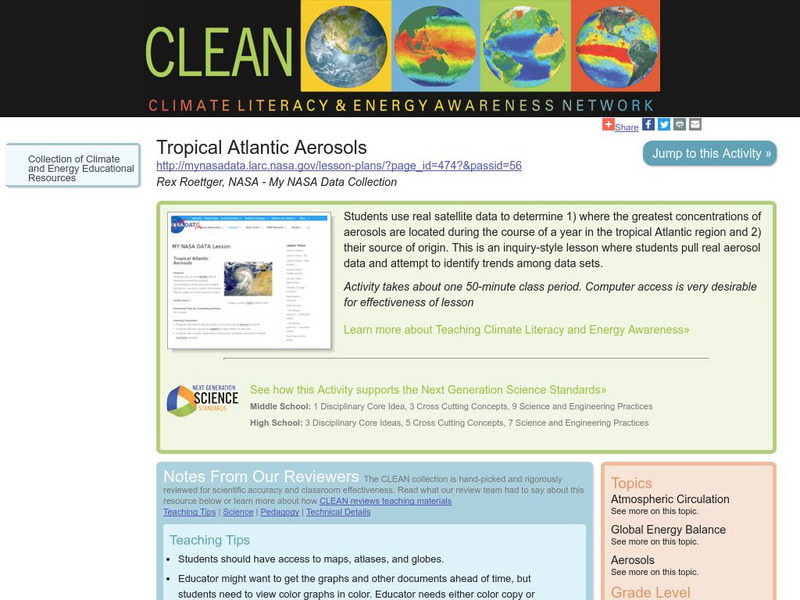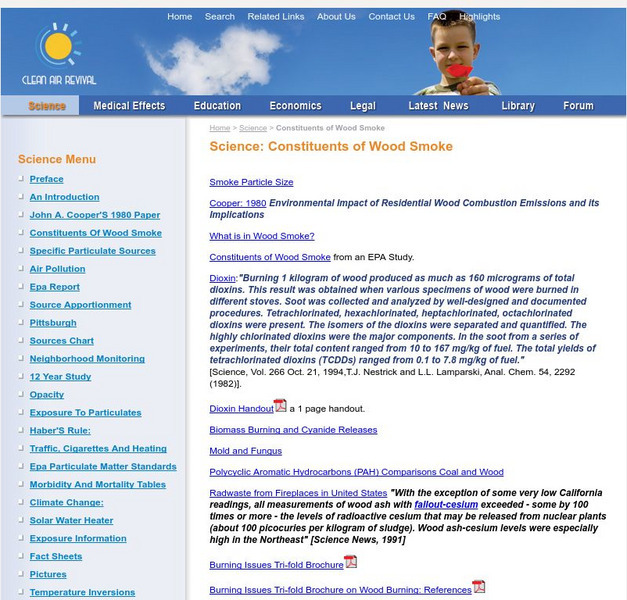Curated OER
Particulate Matter in the Air
Students conduct an inquiry exploring the different kinds of particulate matter in the air. They name three different types of particulate matter found in the air and identify different types of solid particulate matter found in the air...
Yale University
Yale New Haven Teachers Institute: Atmospheric Changes
Lesson unit on the effects of fossil fuel burning on the atmosphere. Includes particulates with good materials balance.
NOAA
Noaa: National Ocean Service Education: Nonpoint Source Pollution
Illustrated tutorial explains nonpoint source pollution and its role in the health of the environment. Students learn about different sources of pollution and how these pollutants contaminate the land, air, and water. Click on the links...
NASA
Nasa Earth Observatory: Global Maps: Aerosol Optical Depth
View Earth's aerosol optical depth by watching a global map evolve from January 2005 to November 2008. Learn about aerosol amounts such as volcanic ash, sea salt, smoke, and other pollutants.
University of Washington
Live From Earth & Mars [Nasa]: Danger in the Air
This site from Live from Earth & Mars [NASA] is a lesson plan using both interactive and written materials. Can be used as a unit or individually.
Climate Literacy
Clean: Tropical Atlantic Aerosols
Students will use real satellite data to determine where the greatest concentrations of aerosols are located during the course of a year in the tropical Atlantic region and their source of origin.
Other
Clean Air Revival: Burning Issues: Constituents of Wood Smoke
Site has several articles on particles from wood smoke and its health effects.
NASA
Nasa Earth Observatory: What Are Aerosols? Fact Sheet
This article discusses tiny particles in the air called aerosols. There are naturally occurring aerosols from volcanic ash, sea spray, grassland fires, and other sources. Learn how scientists believe that aerosols have effects on the...






![Live From Earth & Mars [Nasa]: Danger in the Air Unit Plan Live From Earth & Mars [Nasa]: Danger in the Air Unit Plan](https://content.lessonplanet.com/knovation/original/31323-26b66437de70b854e5f27493404e18f2.jpg?1661447569)


